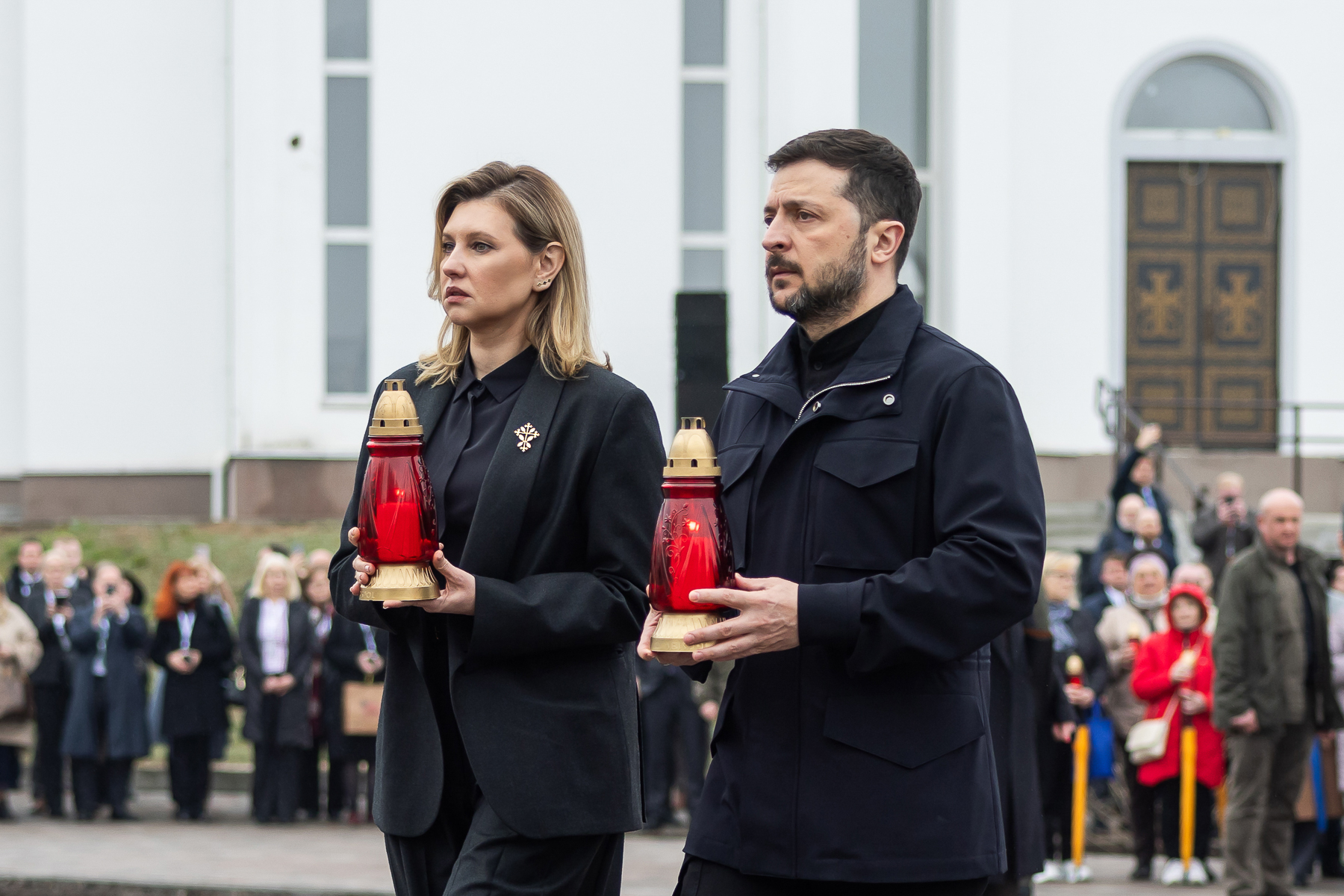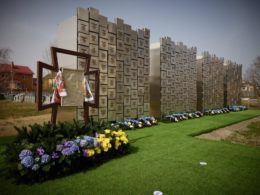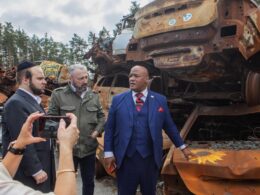Ukrainian President Volodymyr Zelenskyy commemorated the third anniversary of Bucha's liberation from Russian occupation on 31 March, joined by the First Lady and various Ukrainian and foreign officials.
Ukrainian forces reclaimed Bucha and the surrounding community on 31 March 2022. The liberation revealed evidence of widespread civilian casualties, with bodies found on streets, in homes, and in mass graves, many showing signs of torture.
Police reports indicated Russian snipers targeted civilians despite their wearing mandated white armbands. German intelligence, based on intercepted radio communications from Russian forces, suggested these killings weren't random but possibly a deliberate intimidation tactic.
"Since then, no one in the world can say they do not know what Ukraine is defending. Ukraine is fighting for the lives of its people. It is fighting to ensure that no one, ever again, does on our land what the Russian occupiers did," Zelenskyy wrote on X.
According to Zelenskyy's March 2023 statement, the Russian occupation resulted in more than 1,400 deaths in Bucha and the surrounding district, including 37 children.
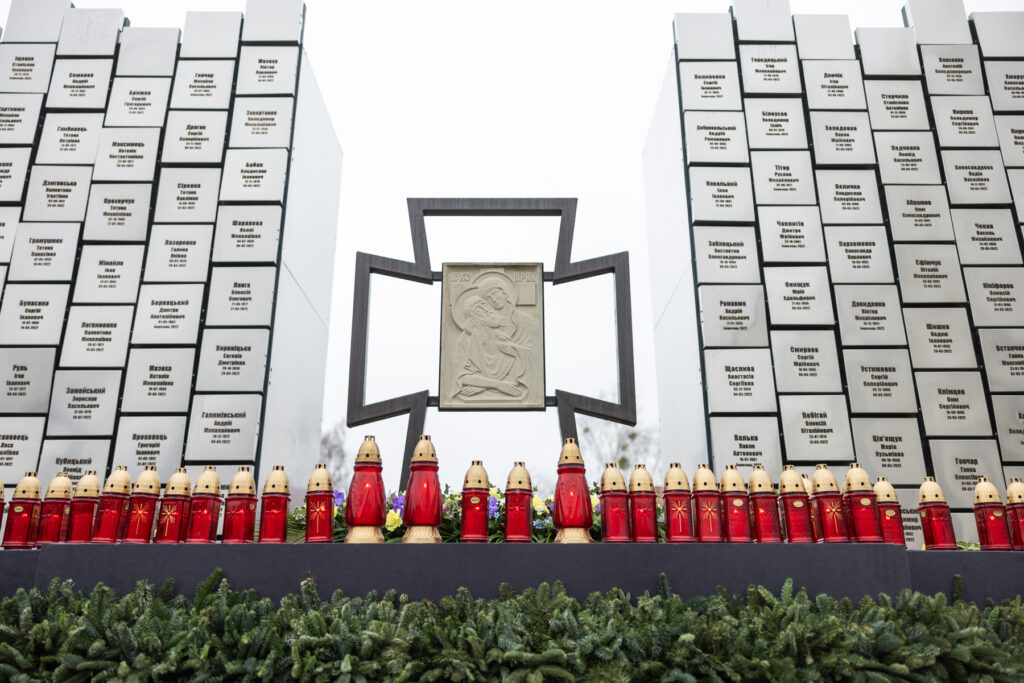
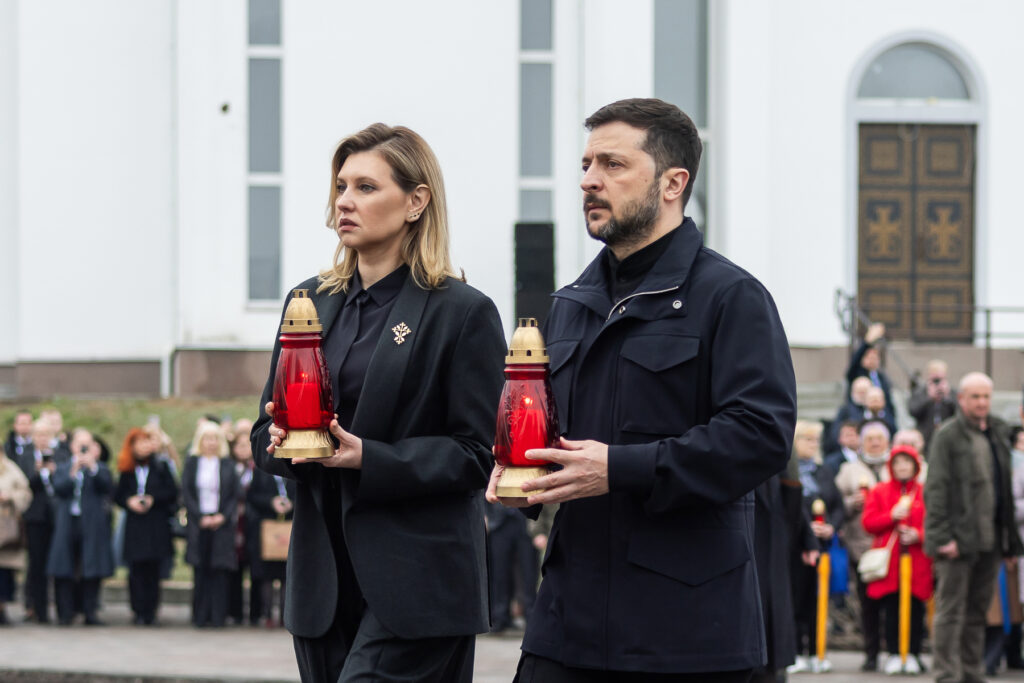

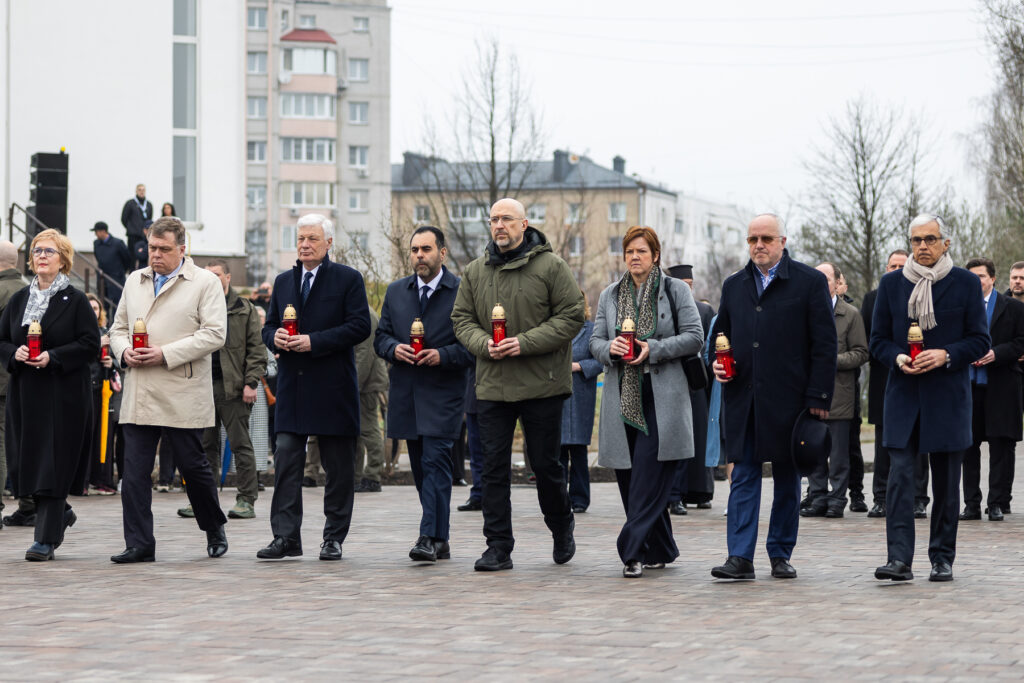
Zelenskyy: Bucha revealed true nature of Russian aggression
During the "Bucha-2025" summit, the Ukrainian president declared that the liberation of Bucha three years ago marked a turning point in global understanding of Russia's war against Ukraine, revealing evidence that went beyond conventional warfare.
"The world then saw murdered civilians on the streets of Bucha, saw evidence of abuse, saw evidence of torture," Zelenskyy stated.
He characterized the war as "a full-scale confrontation between two systems" - a European one valuing human dignity versus a Russian system where "anyone can be killed and abused."
Zelenskyy cited other devastated Ukrainian cities including Bakhmut, Avdiivka, and Vuhledar, which he said "essentially ceased to exist" following Russian military action. He also referenced alleged war crimes at the Olenivka prison camp in occupied Donetsk Oblast and the "Isolation" detention facility in occupied Donetsk.
The Olenivka prison camp gained international attention following a deadly explosion on 29 July 2022, which killed at least 50 Ukrainian prisoners of war and injured over 70. Russia blamed Ukraine for the attack, claiming it was caused by a HIMARS missile strike, but Ukraine and international observers believe it was a deliberate act by Russia to cover up its own abuses of the Ukrainian POWs.
The "Isolation" facility, set up in a former factory in occupied Donetsk, is known for its brutal treatment of prisoners since its establishment in 2014. It is operated by Russian-backed separatists and has been described as akin to a concentration camp. Detainees, including prisoners of war, activists, and civilians, have been subjected to torture, psychological violence, forced labor, and sexual abuse.
Ukrainian authorities have documented over 183,000 crimes related to Russian aggression, according to the president, who suggested the number could be significantly higher in occupied territories.
Zelenskyy emphasized that responsibility lies with "specific individuals, specific Russian occupiers, each of whom has a name, surname and must be convicted by law."
The president rejected the possibility of forgiveness for these actions, stating that "to forgive would mean to agree" with the legitimacy of Russia's actions. He called for continued international pressure and sanctions against Russia "so that the war and abuse do not expand."
Read also
-
“This pain will never cease”: Ukraine marks three years since Bucha’s liberation, honoring victims
-
“Now he’s going to help the Russians?”: Bucha residents react to Trump’s pro-Russian rhetoric
-
Ukraine’s police shows faces of Russian soldiers who murdered civilians in Bucha
-
Ukraine identifies Russian commander responsible for killing woman from viral photo in Bucha
-
Ukrainian police: Many still missing, Bucha civilian death toll not final two years on

